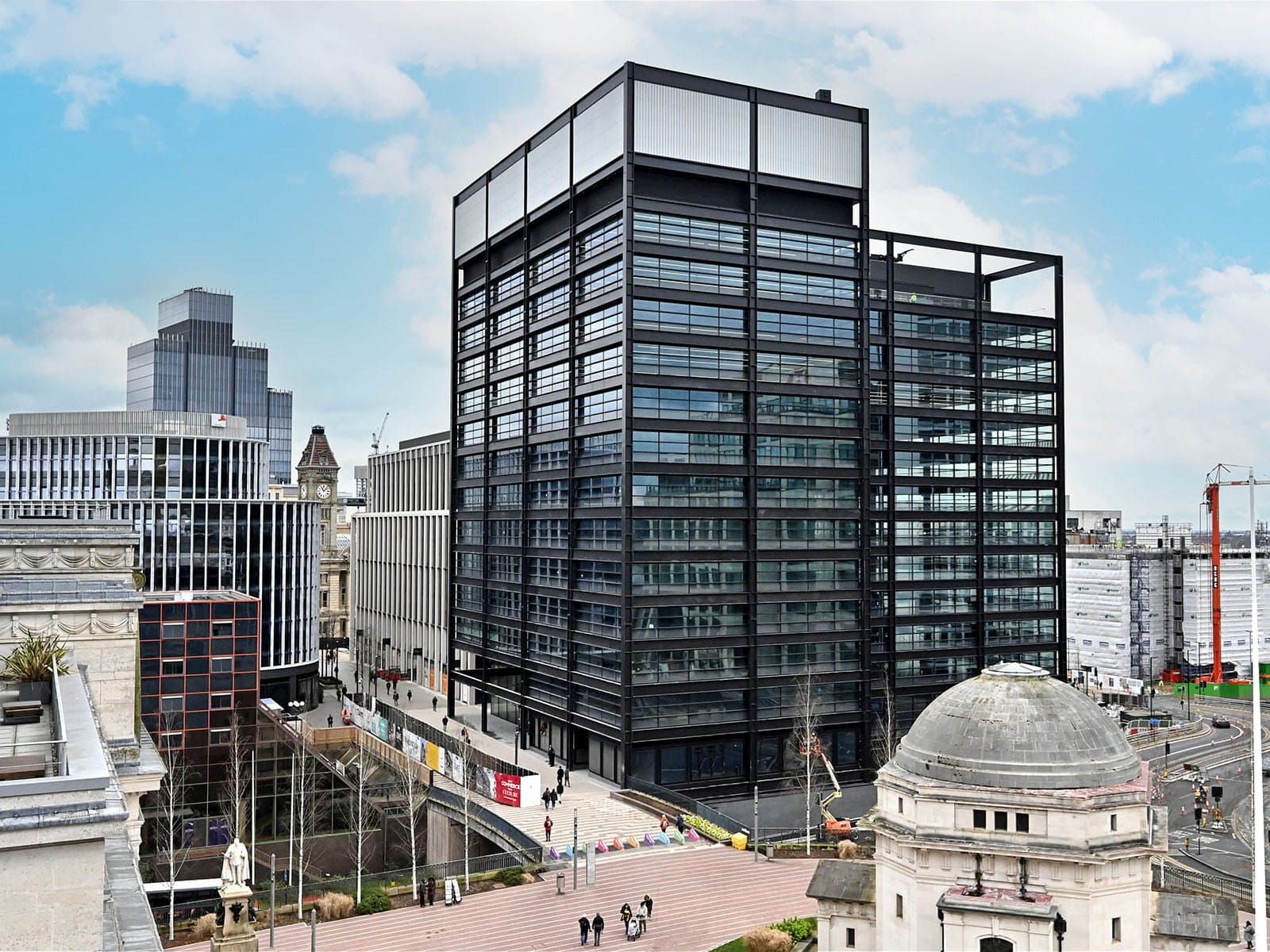In the traditional industrial heartlands of the West Midlands, cutting-edge businesses have proved attractive amid this year’s tricky investment landscape. Andy Thomson gauges the temperature of the region’s deals market.
Welcome to the West Midlands, home of the minority stake. Not the catchiest of slogans, but one befitting a more circumspect world rather than just a region where the ambitions of private equity dealmakers are a little more modest than they used to be. In more bullish times, the leveraged buy-out tends to be front and centre. Today, concern around the sustainability of current valuations, combined with a relative lack of choice when it comes to debt finance, is making the buy-out deal something of a rarity. Minority deals are taking up the slack, and it certainly seems to be the case in the Midlands.
“It might be a bad time to exit due to market factors that don’t reflect the fundamentals of the business or opportunity,” says Seb Saywood, an investor at BGF, which has a network of 15 offices including one in Birmingham and is a long-term minority investor. “If you take investment from an equity partner at this stage of the cycle, there should be opportunities to maximise a future exit when the world is a different place.”
Midlands PE community
There is a group of private equity firms that have established themselves in Birmingham and have a record of completing deals across the West Midlands – some are based in the region, and others with HQs in London or Manchester.
Among the faculty member firms with offices in Birmingham are BGF, LDC and NorthEdge Capital. Andrew Skinner is senior director at NorthEdge and has headed up the firm’s Midlands team for seven years. The private equity firm, which started out in Manchester and Leeds, opened its Birmingham office in 2016. LDC opened its Birmingham office more than 30 years ago in 1989. It has a team of 10, headed up by Chris Handy. Minority investor BGF was established in 2011 with a £2.5bn balance sheet to invest across the UK, through the regional offices that it set up. Neil Inskip heads up the Midlands team, which recently saw the recruitment of Kyle Long as an investor from KPMG.
Maven Capital has a Birmingham-based team headed up by Andrew Ferguson. At Beech Tree Private Equity, Paul Franks leads the Midlands team. Livingbridge has a three-strong investment team based in Birmingham and Palatine Private Equity, which is headquartered in Manchester, has two other UK offices, one in London and one in Birmingham. In the lower mid-market, Jasper Private Equity is based in Birmingham and invests between £500,000 and £5m.
None of these firms have lost their desire to source investments in the region, but the headwinds are blowing a bit more fiercely. “They’re all actively looking. They’re all running processes and looking at off-market opportunities,” says Deloitte’s Boocock. “There’s no loss of appetite. It’s just that there’s not as much deal flow and debt’s tougher to obtain because of where interest rates are.”
Saywood and other local deal professionals report that last year was very busy for West Midlands deals, in traditional sectors such as automotive and industrials as well as today’s more ‘hyped’ areas such as technology and healthcare. But activity slowed following the disastrous ‘mini budget’ in September and hasn’t really picked up since.
The tech take-up
‘Resilience’ is a word used often in these times of economic stress: it’s a quality that investors are on the hunt for. In the West Midlands, technology is the sector many are pinning their hopes on to see the region through the tough times. A recent report by the UK government’s Department of Digital, Culture, Media and Sport said the West Midlands had the country’s fastest growing tech sector and predicted it would generate at least £2.7bn for the local economy by 2025.

“There’s a thriving tech community out there that’s scaling at some speed and there’s therefore an opportunity for investors like us to help drive and amplify that growth,” says Chris Handy, a partner and head of the West Midlands team at private equity firm LDC.
Darren Boocock, a corporate finance advisory partner and head of the Midlands at Deloitte, adds: “For businesses that have been through a couple of rounds of early-stage/seed capital and are now looking for institutional-type capital, there’s traditionally been plenty of appetite for that kind of funding. There has been a drying up of that type of finance lately, but we think it’s temporary as the appetite for these types of business is still there.”
Boocock says healthcare technology is a popular area but so too is food tech, including businesses developing bioponic growth methodologies (growing without soil using environmentally friendly fertilisers). Another area seeing strong activity is challenger broadband providers that are keen to take on established industry giants such as BT Openreach and Virgin Media.
Heart of the matter
Birmingham’s thriving financial community includes private equity firms, corporate finance boutiques, debt advisers, lenders and corporate lawyers. Those in the region say that, outside London, only Manchester can make a reasonable claim to have a better financial infrastructure in the UK. Many deals can be done entirely within the region.
“Long gone are the days when, if someone wanted to sell their business in the West Midlands, they had to traipse down to London to hire a corporate finance adviser who would then put them in touch with a London-based private equity firm,” says Andrew Ferguson, a partner at private equity investor Maven Capital Partners. “That hasn’t had to happen for a long time.”

Certainly, there’s a strong community of private equity firms either focused on the West Midlands or with activities around the UK of which the region forms a part. Few would pretend the first half of 2023 has been anything other than challenging, in large part because debt finance to support deals has become harder to obtain and/or more expensive. When it comes to the second half of this year, however, there is more optimism.
“I think H2 will be quite different, providing the debt markets unlock,” says Saywood. “Even in a flat market there are winners who want to do something, such as taking on a minority investment to acquire competitors. They’re ambitious and they want to grow. That activity always exists, it’s just that there’s been of a bit of a slowdown relative to trade deals for a short period.”
Banking on debt funds
The debt market unlocking Saywood refers to is being aided by more debt funds emerging to take up the slack while banks pull in their horns. “The banks were very supportive through the Coronavirus Business Interruption Loan Scheme (CBILS) during the pandemic,” says Ferguson, “but when you look at how they’ve increased the size of their balance sheets as a result of that support you can see why they probably want to be a little more defensive in the current environment.”
He adds that the debt funds – mostly London-based – have become more prevalent. However, given that the cost of their finance is typically higher than the banks, they won’t necessarily be affordable for everyone. “Debt is more expensive than it’s been for the past 10 years or so and that’s bound to have an effect on the ability to structure and fund deals,” says Deloitte’s Boocock.
He sees the market as subdued rather than lifeless and points out that there is still a large amount of private equity waiting to be invested. While he doesn’t see a return to the M&A boom period of 2021/22, he speculates that an election – probably next year – could be a catalyst for some private businesses to sell, given the volatility that might arise from a change of political control. “There may be a short-term boost ahead of a UK general election that could take deals up to the levels we saw previously,” he says. But with experts predicting a ‘higher for longer’ interest rate environment, no one is predicting a swift return to boom times.
Acquire or hire – or both
Across the country, buy-and-build strategies have become popular in an environment where new deals are proving a challenge for various reasons and so attention is instead being focused on growing existing portfolio companies.
The Midlands is no exception. One approach gaining traction has been dubbed ‘acqui-hire’, when a company acquires another primarily for the skills and expertise of its management and staff, rather than the products or services it might offer.
LDC’s head of the Midlands, Chris Handy, says an ‘acqui-hire’ approach has been put into practice following LDC’s support of the merger of Ross Trustees with Independent Trustee Services to form Independent Governance Group (IGG) in February this year. The deal was a continuation of the Ross Trustees buy-and-build strategy, which has been implemented since LDC’s original investment in November 2020.
Handy says the merger of the firms – which provide trustee and other support services to pensions – was about “aligning the two businesses from a leadership and cultural perspective, driving synergistic benefits, cost benefits and revenue creation where there are cross-selling opportunities”.
The combined business is now on the lookout for further acquisitions or acqui-hires, says Handy, “where we’ll acquire a business that typically has a handful of trustee relationships itself, but sees the benefit of coming into a bigger group”.
Indeed, just a few weeks after completing the merger, IGG acquired Birmingham-based Clarity Trustees, bringing in a range of new clients from family businesses to private equity-backed multinationals.
Of course, LDC in the Midlands has been along the buy-and-build path before. In August 2022, it led a minority investment in IWS Group, a warehouse safety, impact protection and storage equipment provider. With four acquisitions made over the previous four years, IWS had already been implementing an acquisition-led growth plan before LDC’s involvement, but the fresh capital meant it could continue to expand in the years ahead, using the funds for further acquisitions.

